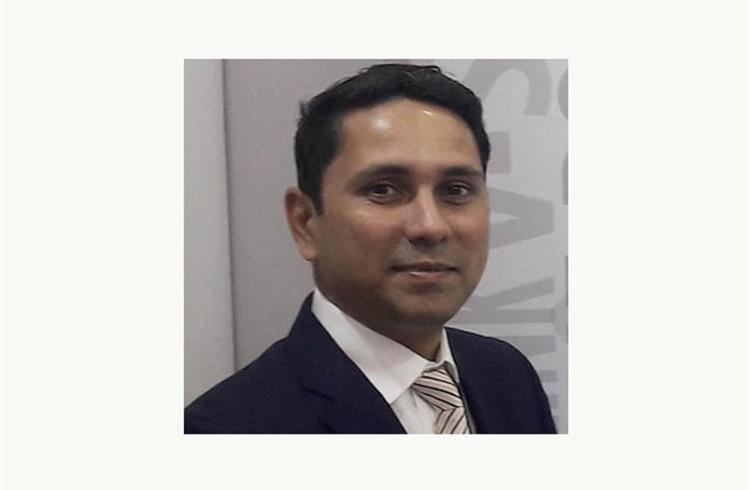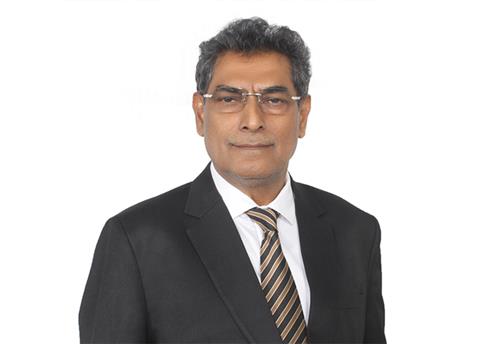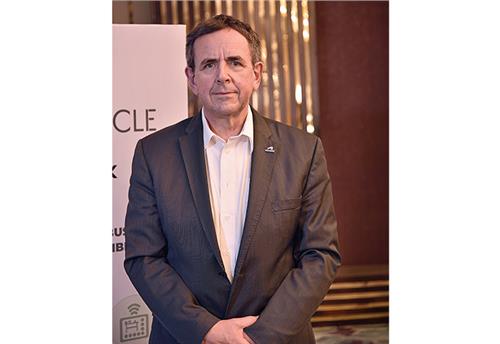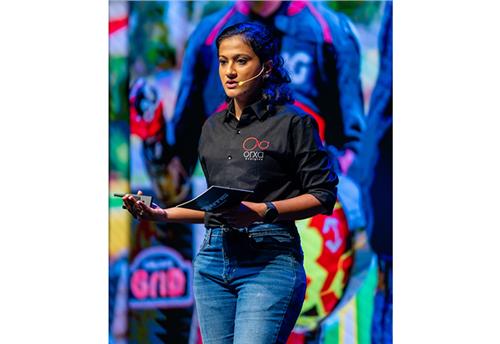‘The challenge really lies in educating the CV customer’
Piyush J Munot, director, KCTR Varsha Automotive, speaks to Amit Panday on plans to foray into the aftermarket space with safety critical components for commercial vehicles.
Piyush J Munot, director, KCTR Varsha Automotive, speaks to Amit Panday on plans to foray into the aftermarket space with safety critical components for commercial vehicles.
KCTR Varsha Automotive is a growing Tier 1 supplier. Why do you plan to foray into the aftermarket segment?
We are a Tier 1 supplier and our main play will continue to remain with the OEMs. While we supply critical parts to the OEMs, the byproduct for us will be the aftermarket space.
We have been successful with the OEM business because we have consistently increased the durability and functionality of our products which safety critical components. These components bear maximum load as the truck moves and therefore have to be designed and manufactured to a quality and standard, which wasn’t the case earlier.
We have achieved some major breakthroughs based on our advanced technology. However, on the flip side, this technology improvement has hit the aftermarket. For example, if a ball joint or a ball pin is being changed in the aftermarket after every 30,000-40,000km, now with our products, these frequent changes are not required.
Our priority is to supply to the OEMs and to improve overall parts safety. How we grow in the aftermarket is primarily based on the abuse that our parts in the vehicles are subjected to. This includes driving on bad roads, damage due to accidents and other factors. This is where we will find the requirement (of our parts) in the aftermarket. We have to be present there. On the other hand, the OEMs will offer these parts but there is an independent aftermarket that we want to cater to.
How do you plan to roll out your aftermarket operations, set up your network and appoint dealers?
ACMA Automechanika New Delhi was our first go-to-market event. From this, we will take four zones with large distributors; we will go to dealers and sub-dealers who could then market our products. This could be one strategy, which we will consider based on the feedback that we get.
The other strategy could be that we can go with the large established distributors, which are already present in the four (east, west, north and south) zones. Since these are already dominating in certain portions of the market, we can join hands with them. Or thirdly, we can opt for both the (above) discussed steps. So we are yet to decide on how to address the aftermarket demand. The response, however, has been good here.
Since KCTR Varsha Automotive has participated for the second time at the ACMA Automechanika New Delhi, what do you think of this platform?
This is a good platform. The visitors that attend this event are coming with a clear agenda, which is pure B2B. There is no B2C story because there is no consumer who is coming here to buy a part. Most of the players here are not the dealers and distributors but are manufacturers who are displaying their products here. The majority of them are looking at creating their B2B market, which is to find channel partners through this platform. We are looking at setting up a structure wherein we can look at institutional sales and create a long-term play in the market.
Do you see price sensitivity in the aftermarket particularly for the CV spare parts as a big challenge?
I think the challenge really lies in educating the customer(s). When you educate the customers, they are ready to pay an extra price for the right technology and durability. In the CV business, the driver is mostly the decision maker. When his vehicle breaks down and he is at a local dealership, he has to make a decision based on his knowledge. Fortunately, he is also the consumer of that part, so safety, durability and other factors are all in his hands. Therefore, I think the education part over a period of time, which we will have to focus upon, is what will fetch us opportunities in the market. The evolution in technology always comes for a price. The same is true if we look at the ongoing emissions upgrade in the market.
ACMA Safer Drives initiative involves educating local mechanics on the difference between fake and original parts among other areas. Do you plan to chalk out similar exercise(s) in the near future?
This is a step-wise process because as a manufacturer if we have to the level of local mechanics, it takes time. But it has to percolate down and can be done via road shows or events like these. We can also go to large pockets, which have a large consumer profile (fleet owners, distributors with large workshops) and educate them there. So there are multiple ways to do this and it will be based on a multi-pronged strategy to pull this off. Events like these are also helpful in terms of the organisations bringing their key stakeholders to this platform and educating them.
Coming to the ACMA Safer Drives, I think, the fundamental thing here is to ensure that people are able to understand the difference between the asli and naqli parts, and what the original parts bring with them for the price gap (safety, durability, comfort, better environment).
We entered this space because we wanted to bring safety and durability to these parts on the roads. This is what, I believe, is our USP.
How did Varsha Forgings and KCTR Varsha Automotive fare in FY2017? What is your forecast for FY2018?
We are a relatively new player in this segment (sealed ball joint technology under KCTR Varsha Automotive. The company is new in the area of steering linkages that include drag link, tie rod and ball joints and suspension parts like torque rod and V-rod. KCTR Varsha Automotive is reportedly gaining foothold with all major OEMs in India.)
Our technology has given now us a boost this year that in our product segment(s), we have grown anywhere between 3x to 4x. While this is not the trend of the market, this is because of the introduction of our products across different vehicles, product lines, and OEMs. Therefore, the growth in this year (FY2017) has been phenomenal. We anticipate a similar growth in the new fiscal too.
If I keep our growth aside and look at the market, I think the CV business typically follows the GDP growth. It either remains at par or slightly above the GDP growth. So as long as the GDP remains around 7 percent, the CV industry will remain at a healthy two-digit growth. The different CV segments, however, will grow according to their own patterns. For example, SCVs are poorly performing currently. For us, the entire spectrum is important. We have to have a balanced portfolio.
The group comprises of different businesses – steering business, forgings, suspension – which is a forward integration of the forging business and the chassis business. All put together, we closed the FY2016-17 with a turnover of close to Rs 500 crore. We expect to close FY2017-18 with a turnover of roughly Rs 600 crore (20 percent growth YoY).
How much of your business comes from exports?
Exports constitute only a fraction of our total business. We typically do not export these components. They are either sold in the domestic market or our OEMs are using them in manufacturing their vehicles (CVs) and they are exporting them either as kits or as components. Pure direct exports would be less than 5 percent, while indirect exports would be close to 20 percent.
We are supplying to MAN, which is exporting to South Africa, Uzbekistan and other countries in South East Asia. We are also supplying to Daimler, which as we all know, has big export plans. We supply to Volvo across three regions – India, China and South East Asia.
RELATED ARTICLES
BRANDED CONTENT: 'We aspire to be among the leading sensors and electro-mechanical products manufacturer'
P. Parthasarathy, Founder & Managing Director, Rotary Electronics Pvt Ltd shares the company's commitment and vision to ...
‘Big opportunity for startups lies in products in India’: Detlev Reicheneder
As electrification levels the playing field, the focus on tech and R&D to bring innovative products is the mantra for st...
'I hope my journey makes people say — I can do this too'
Ranjita Ravi, Co-founder of Orxa Energies — the maker of Mantis e-bikes — shares the challenges of building a startup an...





 17 May 2017
17 May 2017
 9398 Views
9398 Views





 Autocar Pro News Desk
Autocar Pro News Desk




